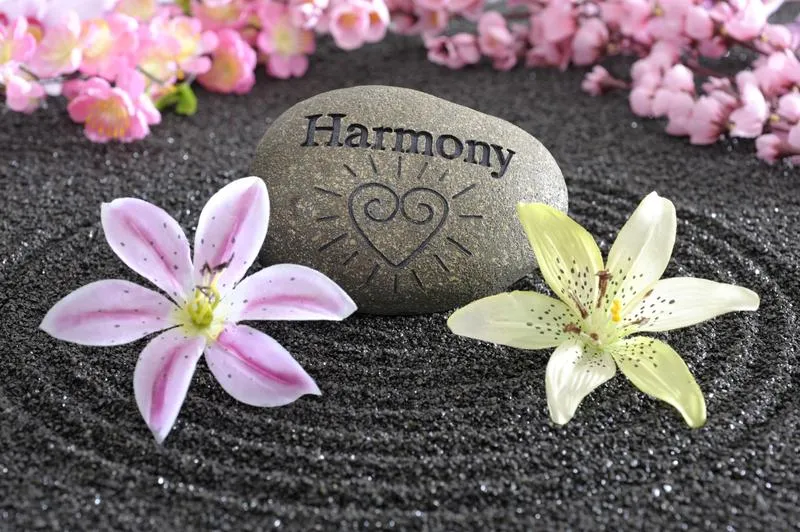
America’s Growing Stress: How to Find Calm in a Tense Environment
The United States is more tense than ever. From economic uncertainty and political divisions to global conflicts and a lingering pandemic, stress levels are at an all-time high. Americans are feeling the strain in every aspect of their lives—sleeping less, drinking more, and experiencing heightened levels of fatigue. This constant state of tension often leads to increased conflict, both in personal interactions and within ourselves.

If you’ve noticed you’re feeling more irritable, having trouble relaxing, or simply not enjoying life like you used to, you’re not alone. But it doesn’t have to stay that way. Here are 7 simple yet effective strategies to help change your state of mind, relax, and find more enjoyment in your day-to-day life.
1. Practice Mindfulness Meditation
Mindfulness meditation is one of the most powerful tools you can use to manage stress and reconnect with the present moment. By focusing on your breath or simple sensations in your body, you can shift your mind away from worries and anxieties about the future.
How to start: Find a quiet spot, sit comfortably, and take a few deep breaths. Focus on the feeling of your breath entering and leaving your body. Whenever your mind starts to wander (and it will), gently bring your attention back to your breath. Even 5-10 minutes a day can make a difference.
Why it works: Studies show that practicing mindfulness can reduce anxiety and improve emotional regulation, allowing you to feel more grounded throughout the day.
2. Take a Break from Social Media
Constant exposure to social media can increase stress and anxiety. We’re constantly bombarded with bad news, political arguments, and the comparison trap of seeing everyone else’s “perfect” life. Stepping away from social media, even if just for a day, can help clear your mind and reduce the tension you feel.
How to do it: Try setting limits on your social media use by using apps that track your screen time. Consider a 24-hour break or schedule specific times during the day when you’re allowed to check your social feeds.
Why it works: Research shows that limiting social media use improves mental health and overall well-being. Disconnecting from the constant information overload gives your brain a chance to recharge.
3. Get Moving with Exercise
Exercise is one of the most effective stress-relievers available. When you’re physically active, your body releases endorphins, the “feel-good” hormones that help to reduce anxiety and improve your mood. You don’t have to commit to a full workout—just getting outside for a walk or doing a few stretches can help.
How to start: Aim for 30 minutes of activity most days. This could be as simple as taking a brisk walk, going for a bike ride, or following a yoga routine online.
Why it works: Exercise not only reduces the body’s stress hormones, such as cortisol, but also helps improve sleep quality and overall energy levels.
4. Practice Deep Breathing Techniques
When stress levels rise, our breathing becomes shallow and rapid, which can make anxiety worse. Deep breathing exercises help calm the nervous system and allow you to regain control of your emotions in stressful moments.
How to do it: Try the 4-7-8 technique—inhale for 4 seconds, hold the breath for 7 seconds, and exhale for 8 seconds. Repeat this several times to feel a wave of relaxation.
Why it works: Deep breathing activates the body’s parasympathetic nervous system, which counteracts the fight-or-flight response, promoting relaxation and reducing stress.
5. Prioritize Sleep Hygiene
Sleep deprivation only adds to stress and irritability. Unfortunately, many Americans are not getting the quality sleep they need. Creating a consistent bedtime routine and improving your sleep hygiene can significantly enhance your ability to cope with daily stress.
How to improve sleep hygiene: Set a regular sleep schedule, keep your bedroom cool and dark, and avoid screens (phones, computers, and TVs) for at least an hour before bed.
Why it works: Good sleep is crucial for cognitive function, emotional regulation, and physical health. When you’re well-rested, you’re better equipped to handle life’s challenges.
6. Reduce Alcohol and Caffeine Intake
It’s tempting to reach for a glass of wine or an extra cup of coffee when you’re stressed, but both alcohol and caffeine can exacerbate anxiety and disrupt your sleep. Moderating your intake can make a big difference in how you feel day-to-day.
How to do it: Set limits on how much alcohol or caffeine you consume. For example, keep caffeine intake to earlier in the day and aim for no more than one or two alcoholic drinks in an evening.
Why it works: Both alcohol and caffeine can interfere with the body’s natural stress-response system, leading to heightened anxiety and disrupted sleep.
7. Spend Time in Nature
One of the best ways to reduce stress is to get outside. Studies show that spending time in nature, even for as little as 20 minutes, can lower stress hormone levels and improve mood. Whether it’s a park, beach, or hiking trail, nature provides a sense of calm that’s hard to replicate indoors.
How to do it: Make a habit of spending time outdoors every day. Even a short walk through your neighborhood or sitting in a nearby park can be rejuvenating.
Why it works: Nature has a natural calming effect on the brain. Exposure to green spaces and fresh air can reduce symptoms of anxiety, depression, and overall stress.
Conclusion: A Call to Reclaim Your Peace of Mind
The current environment we find ourselves in—politically, socially, and economically—has created an overwhelming sense of tension for many Americans. But you don’t have to be swept up in the stress. By incorporating these 7 simple strategies into your daily routine, you can regain control of your mental and emotional well-being. Whether it’s through mindfulness, exercise, or just stepping away from the noise, these small changes can lead to a more relaxed, grounded, and fulfilling life.
Take the time for yourself—you deserve it.
